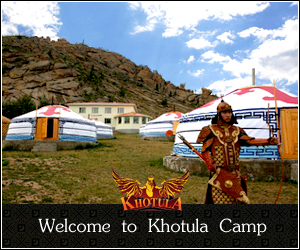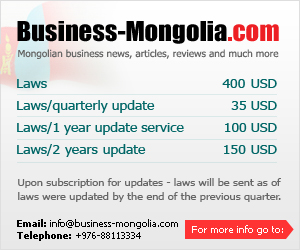Constitution of Mongolia
The Constitution consists of a preamble and 70 articles. The Constitution proclaimed in the preamble the tenets of securing the independence and sovereignty of the state, cherishing human rights, freedom, justice, inheriting the traditions of national statehood, history and culture, showing respect for the accomplishments of human civilization, and development of human, civil and democratic society as its supreme objective.
It declares the independence and sovereignty of the State, the fundamental principles of the activities of the State, the form of state structure, territorial integrity, universal trends and features of Mongolian economic development, all forms of public and private property and the inviolability of the frontiers of the country. It also defines the relationship between state and religion and encompasses the principles of adherence to international law, the policy on ensuring the country’s defense and national security.
The State Emblem, Standard, Flag and Anthem are formalized and other issues guaranteeing the sovereignty of the State and basic principles of foreign relations and foreign policy are defined. Political and social rights that have become the norm in democratic countries. They include equality before the law, personal liberty, freedom of movement, freedom of religion, freedom of expression, and the right to participate in political process such as the right to vote and hold public office. In addition, the State has to guarantee various social rights ranging from the right to education to the right to seek and receive information. The Constitution makes it clear that all citizens have basic duties, namely, the duty to pay tax, the duty to bring up and educate children, protect nature and the environment, defend the motherland and serve in the army according to the law.
It lays out the structure, system and legal basis of the activities of the legislative, the executive and the judicial branches, and democratic principles of the separation of state powers. From the provisions of this chapter it can be seen that Mongolia is a democratic parliamentary republic
The State Great Khural, The President, The Government and The Judiciary. The administrative and territorial units of Mongolia, and the implementation of civil representing-governing and local self-governing orders. It lays out the principles for establishing the Constitutional Court, which is the branch exercising supreme supervision over the implementation of the Constitution. It hands down conclusions on the violation of its provisions and resolving constitutional disputes are outlined including its structure and procedures. How to amend the Constitution of Mongolia and how to subordinate other laws of the Constitution. Compared to the constitutions adopted in 1924, 1940 and 1960 the new Constitution of Mongolia is a Basic Law with true democratic character, defined not only by its content and structure but also by the people’s aspirations and opinions that are reflected in it.
The Constitutional Court is a branch exercising supreme supervision over the implementation of the Constitution, handing down conclusions on the violation of its provisions and resolving constitutional disputes. It shall be the guarantee for the strict observance of the Constitution. As the nation’s top judiciary body it does not depend on any party, coalition or political power, and is subject only to the Constitution. Actions of the President, Parliament and Government are all subject to the Constitutional Court.
The Constitutional Court consists of nine members. Members of the Constitutional Court shall be appointed by the State Great Khural for a term of six years, with three of them to be nominated by the State Great Khural, three by the President and the remaining three by the Supreme Court. The Constitutional Court examines and settles constitutional disputes on its initiative, on the basis of petitions and information received from citizens or at the request of the State Great Khural, the President, the Prime Minister, the Supreme Court and the Prosecutor General.












